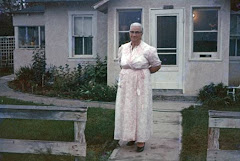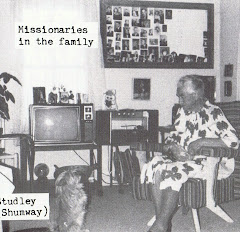 |
| Mendenhall gravesite Dayton, Franklin, Idaho |
This story was sent to me a couple weeks ago by a dear cousin, Ella Calhoun. It is a most sobering story of pioneer life, one I had never heard before, although Calvin Boyce/Boice is my great-grandfather. The strength and endurance of these great pioneers is never to be underestimated. Indeed we believe, Families are Forever.
***************
As you travel along Highway 86 in Franklin Co., Idaho, and come to a bridge on the West Cache Canal, stop. There, on a sagebrush hill above you, you will see an abandoned cemetery. A few crude headstones stand out in the bunch grass and wild sunflowers, marking the graves of some of the noble men, women and children who settled in the valley along Bear River.
The George Mendenhall family, pioneers of 1852, was among these hardy pioneers. They built a log house at the foot of the little hill, had a family of six and were happy among relatives and friends. They lived a typical frontier life-- plowing, reaping, weaving and spinning, and trusted in the Lord for his protecting care. There was no need for a sheriff or a lawyer among this little group along the river bottom, then known as Franklin Meadows; a man's word was his bond, and if a neighbor needed help, it was freely given with no thought of getting something in return.
The long winter months passed by, and then on the last of March, with the return of spring, diphtheria broke out. The Mendenhalls were stricken. "George," called a neighbor from a safe distance outside the house. George appeared at the door and the neighbor continued, "How many are down with diphtheria to day?" George answered in melancholy tones, "there are two that are very sick. We were up all night with Valerie and now Leslie has taken a turn for the worse." "Is there anything we can bring you?" "Yes, the wood is getting low, burning a fire night and day, and we need a gallon of kerosene before night." The neighbor, backing away a step each time she spoke, called, "I'll bring it." Horror was on her face as she thought of diphtheria germs that might be flying about the yard, and as for the wood she'd have her husband go to the hills and cut some, not in George's yard. In late afternoon, a sister put a package of food over the fence, and was almost out of hearing distance before she dared call the family. As George came out to get the package, she ran faster than if he had aimed a six-shooter at her. This was diphtheria and deadly germs were lurking everywhere. "Valerie and Leslie are worse" he called as he took the package of bread and dried apples into the house.
The word spread to Dayton, a little town three miles west, that the Mendenhall children were dying. This was more than the kind heart of Aunt Sarah Phillips could stand. Aunt Sarah was a widow with a large family but she was blessed with a divine touch of healing, and never refused to help anyone who needed her. "Lizzie," she called to her daughter, "the two Mendenhall children and dying. I feel I must go to them. I know the Lord will spare me from the disease and from bringing it home to my children. Will you take care of things while I am gone?" "Yes, mother," replied the faithful Lizzie, "and I'll pray for you an the Mendenhalls." Aunt Sarah alighted from a wagon in front of the Mendenhall home which brought tears of relief and joy to the family. Help had come at last! She tied on her white waist apron and began to work swabbing the swollen throats with drops of turpentine, and trying to get the two little ones to swallow oil and sugar. Dark-haired Leslie, just five years old, grew more limp and blue each hour. There was no time to be lost, but what could they do? With a final weak, choking spell, he lay lifeless in his mother's arms. There was not time for tears; Valerie must be saved. They worked tirelessly, but it was no use. In a few hours Valerie, age seven, too had passed away.
Aunt Sarah bathed the little bodies and laid them on some rough boards beside an open window. Someone brought a sack of snow which was placed in bottles and put around the bodies to keep them cool until buried. When Cal Boyce heard of the double tragedy, he said, "It aint right for a father to have to nail a coffin lid on his own children. I'm going in and help them," and the next morning Cal was there. The neighbors made a rough box big enough to hold the two little bodies, and Aunt Sarah and Brother Boyce wrapped them in blankets and laid them side by side. Then they drove to the new cemetery on the hillside and buried them.
Spring came early with all her natural beauty. The willow trees along the river began to bud, and the hills grew fresh, bright green with June grass. Then tragedy struck again at the Mendenhall home. This time, three-year-old Leroy fell a victim to the disease, friends came again with wood, kerosene and put packages of food by the fence. "Be of good cheer," they told the Mendenhalls, "Surely God will not ask more of you." But man's judgment is not always correct. On March 27th, Leroy died and buried beside his brother and sister. Two weeks later, the wagon of George Mendenhall stopped again on the graveyard hill. This time the father and Brother Boyce lifted a box out of the wagon containing the body of little George, age nine, and laid it to rest beside the other three children. That left the Mendenhalls with only Elvira, age eleven and a babe in arms. Through this crushing experience, these pioneers had no time for bitterness. There was work to do, and there was always hope in the future.
Sustained by their religious belief that death is not the end, that we will meet our loved ones and live again, they were able to go on. After being tried like Job of old, God blessed these faithful parents with other children. Of course, none ever took the place of those they had lost, but there was music and laughter again in the Mendenhall home. Times grew more prosperous. Hunger and want were driven out, but then diphtheria struck again. There were doctors now, but nothing could be done to save two beautiful Mendenhall girls. Zella was taken first, and in six more days, Elsie followed her. This was in 1902. Diphtheria had taken a toll of six from the Mendenhall family.
I stood on the hill and looked at the graves of George and Celeste Ann Mendenhall and their children. A feeling of reverence overwhelmed me as I thought of the courage and stamina of these people and in my heart I was proud to say that I live in a valley made possible by such pioneers as these. Whenever I pass this cemetery, the headstones stand out like lonely, beacon lanterns, telling me to face my problems, and the future as bravely as they.
---Ann C. Hansen










Thank you so much for this beautiful, very sad story. Thanks for keeping their memories alive and for also telling of the Lord being their hope and strength.
ReplyDelete